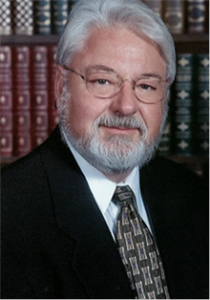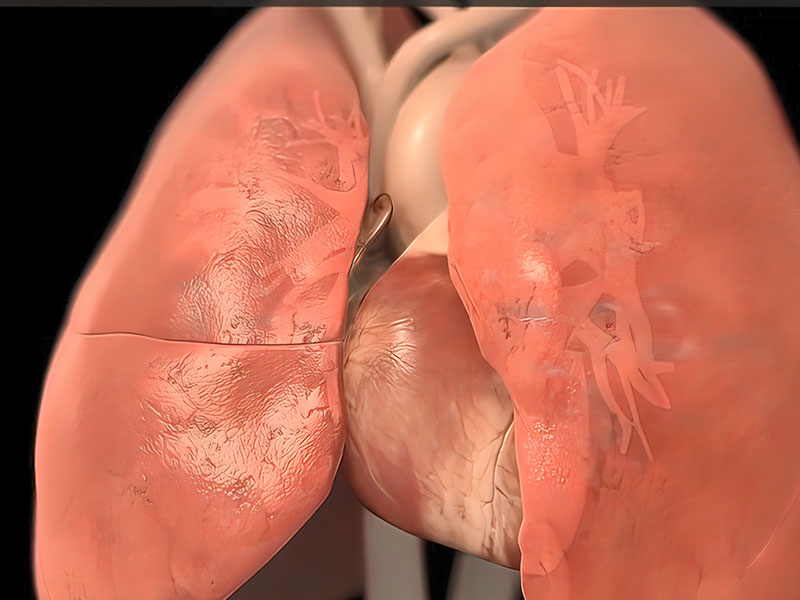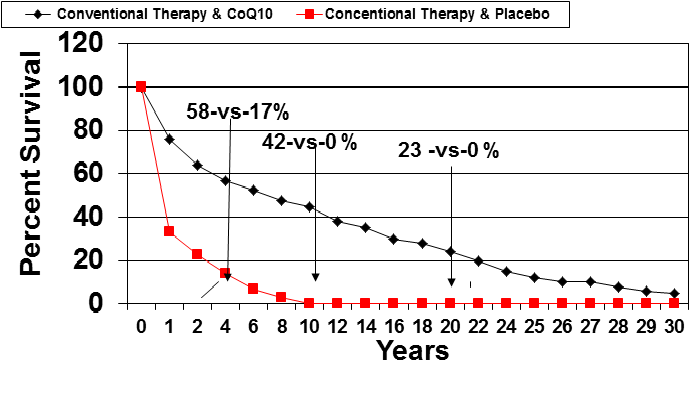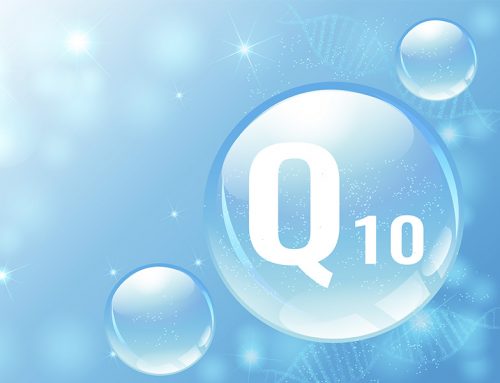
Dr. William Judy has worked in basic and clinical research for over forty years, focusing primarily on Coenzyme Q10, Hyaluronic Acid, and other natural products that promote health maintenance and disease relief.
Recently I talked with Dr. William Judy, one of the pioneers in coenzyme Q10 research in the United States. Dr. Judy did a Ph.D. in physiology and biophysics at West Virginia University, where he wrote his doctoral dissertation on the topic of Sympathetic Nervous Control of Renal Hemodynamics.
Early on in his career, Dr. Judy worked with Dr. Karl Folkers in the Institute for Biomedical Research at the University of Texas in Austin. Dr. Folkers, who was and is widely regarded as the father of CoQ10 clinical and biomedical research, and Dr. Judy collaborated on studies of Q10 absorption and bioavailability, studies of Q10 as adjunctive treatment in congestive heart failure patients, and studies of Q10 in the treatment of cancer patients, prostate cancer patients in particular.
Q10 in basic and clinical research
Later in his career, Dr. Judy worked for many years as a professor in the Department of Physiology and Biophysics at the Indiana University School of Medicine in Indianapolis. On his own, Dr. Judy has founded and directed the Southeastern Institute for Biomedical Research (SIBR), which has specialized in basic and clinical research of natural products for health.
CoQ10 is the essential bio-nutrient (Dr. Karl Folkers)
Dr. Judy is especially proud of the research that the Institute has done on the clinical uses of coenzyme Q10, which Dr. Folkers called the essential bio-nutrient. Many of the results of studies done by SIBR have not been published in academic journals because of non-disclosure and confidentiality agreements with the corporations that commissioned the studies.
However, Dr. Judy was able to share some of the results of the clinical work that he and Dr. Folkers began with congestive heart failure patients in the 1980s and that Dr. Judy continued, following the death of Dr. Folkers, right up until the year 2010.
What is heart failure and why is Q10 important?
Remember, we define heart failure as the condition of having a heart that no longer fills up with blood and pumps blood out to the organs as well as it should. Two of the most common causes of heart failure are coronary artery disease and hypertension. We sometimes talk about congestive heart failure because the blood can become backed up in (congested in) the lungs and liver and other organs. Conventional therapies for heart failure, depending on the case, include ACE inhibitors, angiotensin II receptor blockers, beta-blockers, calcium channel blockers, diuretics, vasodilators, and anti-coagulatants.
New York Heart Association functional classes
Remember, too, that, in discussions of heart failure patients, we classify heart failure patients according to the New York Heart Association’s functional classes, with class I being the least severe and class IV being the most severe.
Dr. Judy’s clinical experience with Q10 and congestive heart failure
First at Methodist Hospital and then at St. Vincent Hospital in Indianapolis, Dr. Judy followed class IV heart failure patients who had been assigned randomly to either a conventional therapy plus coenzyme Q10 treatment group or a conventional therapy with placebo group. In the early years, Dr. Folkers’ lab provided the capsules and did the Q10 absorption blood tests. Later SIBR took over these tasks.
Dr. Judy has continued to follow the results of the clinical intervention with Q10, and his summary of the results can be seen in the graph below. The black line on the graph represents the survival percentage of heart failure patients receiving Q10 in addition to conventional therapy. The red line represents the survival percentages of patients who did not receive Q10.
Survival rates with and without Q10 supplementation
Already after one and two years, and certainly after four years, and from then on, the patients who received a Q10 supplement showed a much better survival rate than the patients who did not receive Q10 supplements.
Class IV CHF Survival Statistics with Conventional Therapy and CoQ10
versus Conventional Therapy And Placebo
Formulation of the Q10 preparation very important
The point that Dr. Judy emphasized to me over and over is that not all Q10 products are absorbed equally well. In fact, the Q10 products in powder form are poorly absorbed because, Dr. Judy says, the body cannot absorb crystals. The Q10 products that give the best absorption are the crystal-free products with a facilitating lipid carrier.
Dr. Folkers, for example, dissolved the Q10 in soybean oil in his attempt to improve absorption.
Q10 and Affordable Health Care Act
At present, Dr. Judy’s big effort is directed at educating cardiologists in Indianapolis and around the country about the benefits of Q10 supplementation for heart failure patients as has been demonstrated in the Q-symbio study. Supplementation with Q10 is important not only for the heart failure patients, for whom it affects survival rates and quality of life. Supplementation with Q10 is also important for the hospitals in which the cardiologists care for heart failure patients because the Affordable Health Care Act fines hospitals 4 per cent of the hospital bill for every patient with heart failure, heart attack, chronic obstructive pulmonary disease, hip or knee replacement, or pneumonia who has to be readmitted to the hospital within 30 days after discharge from the hospital.
Importance of the Q-symbio study
As Dr. Judy says, the Q-symbio study shows that heart failure patients who received a well-absorbed Q10 supplement had to be re-admitted to the hospital significantly less often than heart failure patients who did not receive the Q10. The better the Q10 product is with respect to absorption and bioavailability, the better the clinical results will be. During the past 40 years, very large numbers of congestive heart failure patients have responded significantly to Q10 therapy. Q10 is truly the essential bio-nutrient.
Dr. William Judy’s message about Q10
Summing up then, what can we learn from Dr. Judy’s clinical evidence? Answer: supplementation with Q10 in congestive heart failure patients should have the following effects:
- Q10 reduces the severity of the symptoms
- Q10 decreases mortality rates
- Q10 increases the number of years of survival
- Q10 improves the quality of life of the patients
I want to thank Dr. William Judy for his generous sharing of his knowledge about the clinical effects of Q10. Perhaps in a future article, I can discuss Dr. Judy’s experience with Q10 and cancer patients and Q10 and Prader-Willi Syndrome children.
Personal experience with Q10
And what about Dr. Judy’s personal experience with Q10? Dr. Judy had a major heart attack 16 years ago. It left him in the Class IV functional class. With Q10 therapy, he recovered at least 50 per cent of the heart muscle he had lost. He has had six-vessel by-pass surgery and has three stents and a pacemaker. After the heart attack, he was expected to become a cardiac basket case, but he fooled the heart doctors. He is doing just fine on Q10, and he says that he can tell whenever he misses taking the product for a few days. His mother, who died last fall at age 98, was on Q10 for 40 years and survived cancer and heart failure. She had a very good quality of life until the last few months of her life.
One final note: Dr. Judy and his colleagues wrote and published the very influential and very informative paper entitled Coenzyme Q10: Facts or Fabrications.










Leave A Comment